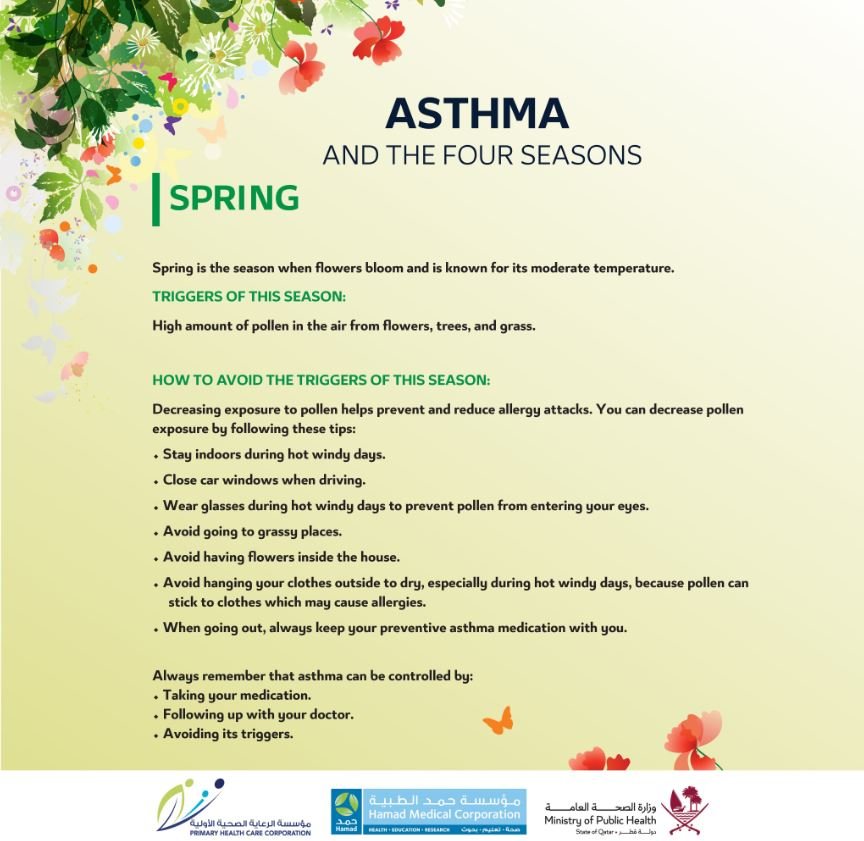Springtime in Doha, Qatar, is greeted with the promise of blooming flowers and better weather. But for those who suffer from asthma, this seasonal change presents unique difficulties, mainly because of the increase in triggers such as pollen.
The Ministry of Public Health (MoPH) has intervened to provide vital advice on effectively controlling asthma during this time when spring arrives in Qatar. Asthma is classified as a chronic respiratory disease that requires ongoing care because it can seriously impair breathing, general health, and even life.

The Ministry emphasises that springtime increases the amount of pollen in the air that comes from grass, trees, and flowers, which makes asthma symptoms worse. The MoPH highlights on social media that reducing exposure to pollen is essential for both avoiding and treating asthma episodes caused by allergies.
The MoPH advises taking the following safety measures to get through this difficult season:
simulate outdoor activities on windy, hot days.
When driving, keep your car windows closed to keep pollen out.
When it’s windy outside, wear glasses to protect your eyes from pollen.
Avoid grassy locations where there can be a lot of pollen.
Avoid bringing flowers inside the house.
It is best to avoid hanging things outside to dry, especially in hot and windy weather when pollen can stick to clothing and cause allergies.
Make sure you have access to preventive asthma medicine before heading outside.
Recent studies have shown a disturbing 9% prevalence of asthma among adults in Qatar, underscoring the need of comprehensive asthma care. This emphasises how important it is to take preventative action, particularly in light of seasonal and climatic fluctuations.
The Primary Health Care Corporation (PHCC) confirms these worries by pointing out that asthma is the most common illness in Qatar and the Gulf States. The PHCC warns against seasonal increases in asthma cases, attributing them to dust, humidity, and Qatar’s warm temperature.
The PHCC goes on to explain that a variety of outside triggers can cause asthma attacks, in addition to weather-related reasons. These include dust in the home, industrial smoke, food products, respiratory illnesses, and droppings from animals and birds. In response, PHCC promotes vaccination against influenza and pneumococcal disease, which are easily accessible at all of its health centres.
Expanding on these observations, the MoPH highlights that asthma can be successfully treated by:
regular adherence to the medicine regimen.
rregular conversations with health care provide
avoidance of known triggers with caution.
Basically, people who suffer from asthma are urged to be watchful and proactive in protecting their respiratory health from seasonal hazards during the attractiveness of springtime in Qatar.
